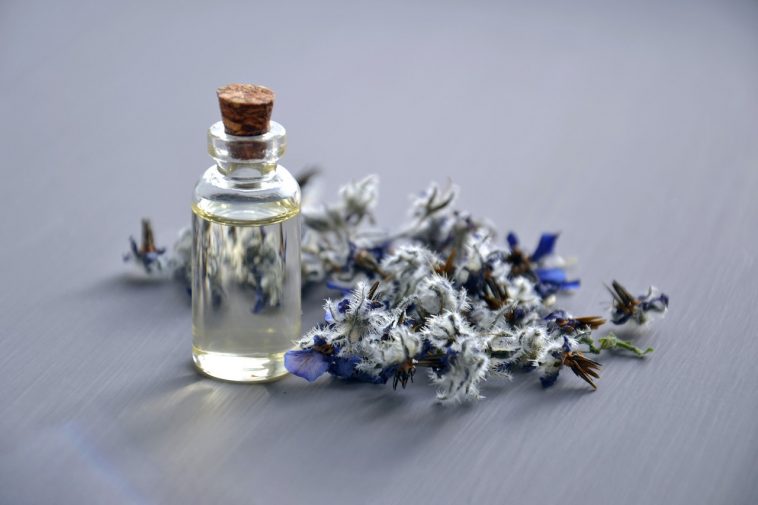What are Essential Oils?
Melatonin isn’t the only short cut to better sleep quality – essential oils use plant-based fragrances with an “essence” extracted for a potent oil. Ideally, your essential oil shouldn’t be blended with other scents or chemicals. The fragrance can come from petals, bark, roots, herbs, or flowers.
What is Aromatherapy, and how does it work?
Aromatherapy is when essential oils (or anything else inhaled) activates smell receptors in your nose. These receptors send messages to your brain via the nervous system. For insomniacs, the message is to relax and peacefully doze off. It’s not used to replace medical treatments but is seen more as an all-natural way to supplement your existing routine.
The Best Essential Oils for Insomnia
Lavender:
Lavender is probably the most famous essential oil used for insomnia. It promotes sleep by increasing slow-wave sleep (the sleep that’s responsible for relaxing your muscles and slowing that heart rate down.)
Ylang Ylang:
It’s safe to say we’re obsessed with any skincare products infused with ylang-ylang. The addictive floral scent is courtesy of the ylang-ylang fruit, which comes from Indonesian Canaga trees. The scent isn’t just addictive – it’s soothing and shown to reduce stress and increase relaxation.
Jasmine:
Often consumed in tea, fragrant jasmine’s molecular composition is very similar to medicines often prescribed for insomnia. Double down and have a steaming cup before you spritz your room!
Clary sage:
This herbal and earthy essence has flowery undertones. And while we love the scent, it’s the magical abilities of clary sage that continuously awe us. Known as a natural sedative, clary sage reduces cortisol levels, a major reason for stress.
Chamomile:
Also often used as a bedtime tea, chamomile lowers depression and anxiety, often tied to insomnia. For centuries, chamomile has been used as herbal medicine to induce more calm in your system.
We know – peppermint? For sleep? It might be invigorating for those with healthy airways. Still, if you have sleep apnea, septum issues, or blocked airways for some other reason, this natural anti-inflammatory herb can help open them up, so you can finally breathe and get some rest.
How to Use Your Essential Oil
1. You can rub a couple of drops directly on your forehead, neck, wrist, or chest. If you have sensitive skin, mix with a carrier oil such as coconut or grapeseed oil, which dilutes it.
2. Get it in the form of a candle. In aromatherapy candles, the wax is infused with essentials oil.
3. Place several drops of the essential oil in an air diffuser or a humidifier with a built-in air diffuser.
4. Add to water and place in a spray bottle and use it as a room spray or a pillow spray.
5. Add a few drops to a bath.
6. Use the steaming method. Add drops to boiling water and inhale the hot steam that comes out of it. Add a towel around your head to create a tent that holds the steam in.
Read more:



